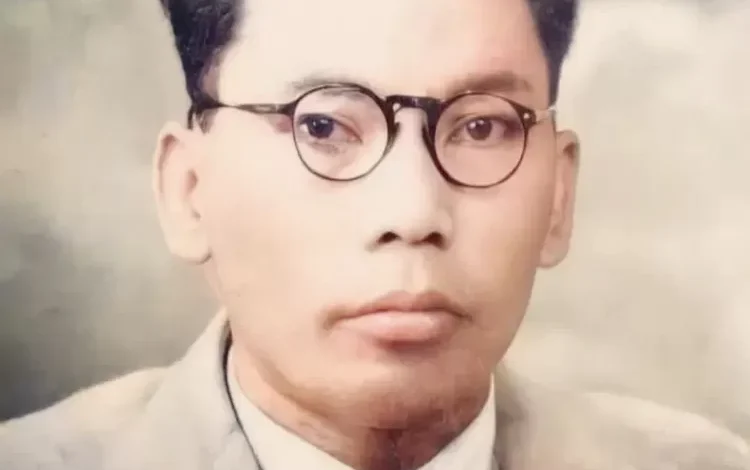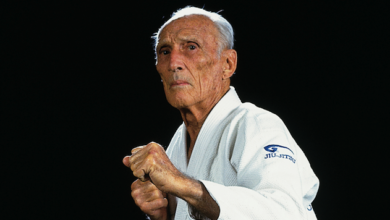Ki Hadjar Hardjo Oetomo: Founder of Setia Hati Pencak Sport Club

Experts: Ki Hadjar Hardjo Oetomo was born in 1883 in Winongo, Madiun, East Java, Indonesia. He grew up in a period of Dutch colonial rule, during which Indonesians faced severe oppression and limited access to education and social mobility.
Despite these challenges, he demonstrated an early passion for education, leadership, and Pencak Silat, which later played a crucial role in both his contributions to Indonesian independence and the development of Setia Hati Pencak Sport Club (SH PSC).
Education and Career Path
In his early years, Ki Hadjar Hardjo Oetomo pursued a career in education, becoming an apprentice teacher at an elementary school in Madiun. However, his quest for broader knowledge and experiences led him to explore different professions, including:
- Working for the State Railways Company (Staats Spoorwegen – SS, now PT Kereta Api Indonesia), holding positions in Bondowoso, Panarukan, and Tapen.
- Serving as a market officer (Mantri Pasar) in Madiun, overseeing economic activities in several markets such as Dolopo, Uberan, and Pagotan.
- Taking a role at Pabrik Gula Redjo Agung Madiun (Redjo Agung Sugar Factory) in 1916, where he developed organizational and leadership skills.
These varied experiences shaped his strategic thinking and leadership, which he later applied to both his role in Indonesian nationalism and the expansion of Pencak Silat in Indonesia.
Involvement in Nationalist Movements
Ki Hadjar Hardjo Oetomo was deeply committed to Indonesian independence and actively participated in nationalist organizations fighting against Dutch colonial rule. He was involved in:
- Boedi Oetomo – The first indigenous political organization in Indonesia, promoting education and self-determination.
- Sarekat Islam (SI) – A movement advocating for economic independence and political activism for native Indonesians.
- Taman Siswa – An educational movement focused on providing schooling for Indonesians outside the Dutch-controlled education system.
These organizations played a pivotal role in shaping his vision, reinforcing his belief that Pencak Silat should be accessible to the common people, particularly as a means of self-defense, self-discipline, and national resistance.
The Birth of Setia Hati Pencak Sport Club (SH PSC)
Training in Pencak Silat Setia Hati
Ki Hadjar Hardjo Oetomo was a dedicated martial artist, training in Setia Hati, a traditional Javanese self-defense system (Pencak Silat). He learned directly from Ki Ngabehi Soerodiwirjo, the founder of Persaudaraan Setia Hati (SH), a respected martial arts school known for its emphasis on inner strength, discipline, and spiritual enlightenment.
However, Setia Hati at the time was exclusive to aristocrats and upper-class Indonesians, limiting its accessibility. Ki Hadjar Hardjo Oetomo believed that all Indonesians, regardless of class, should have the right to train and develop self-defense skills.
Foundation of SH Pencak Sport Club (SH PSC)
In 1922, with the blessing of Ki Ngabehi Soerodiwirjo, Ki Hadjar Hardjo Oetomo took a revolutionary step by founding the Setia Hati Pencak Sport Club (SH PSC) in Pilangbango, Madiun.
The primary goals of SH PSC were:
- Teaching martial arts to the general public, including workers, farmers, and students.
- Integrating self-defense with moral and nationalistic education.
- Preparing young Indonesians physically and mentally for resistance against colonial rule.
SH PSC rapidly gained popularity, spreading to regions such as Nganjuk, Kertosono, Jombang, Ngantang, Lamongan, Solo, and Yogyakarta.
Evolution into Persaudaraan Setia Hati Terate (PSHT)
Over time, SH PSC evolved into what is now known as Persaudaraan Setia Hati Terate (PSHT), emphasizing:
- Brotherhood and solidarity among members (Persaudaraan).
- Mental and spiritual strength, not just physical combat skills.
- Discipline, respect, and a philosophy of lifelong learning.
Today, PSHT is one of Indonesia’s largest and most respected Pencak Silat organizations, with millions of members practicing its teachings worldwide.
Resistance Against Dutch Colonial Rule
Arrest and Imprisonment
Ki Hadjar Hardjo Oetomo’s nationalist activities and the expansion of SH PSC attracted the attention of the Dutch colonial government. In 1925, he was arrested and imprisoned in Cipinang Prison due to his involvement in anti-colonial movements.
He was later exiled to Padang, West Sumatra, where he spent 15 years in prison. Despite this, his influence continued to grow, as his students and followers carried on his teachings in secret.
Release and Continued Activism
After his release, he returned to Madiun and continued to expand SH PSC, adapting its curriculum to avoid suspicion from colonial authorities by renaming the club from Pencak (Martial) to Pemuda (Youth).
Later Years and Death
Even in his later years, Ki Hadjar Hardjo Oetomo remained dedicated to spreading SH PSC and the values of discipline, unity, and self-improvement.
On April 13, 1952, Ki Hadjar Hardjo Oetomo passed away. He was buried in Pilangbango, Madiun, East Java, where his tomb remains a site of remembrance for martial artists and nationalists alike.
A Pencak Silat Legend and National Hero
Ki Hadjar Hardjo Oetomo was more than just a martial artist—he was a visionary, a teacher, and a patriot. His impact on Indonesian martial arts and nationalism continues to be felt today, ensuring that his legacy will never be forgotten.
Through PSHT now and his contributions to Indonesia’s independence movement, Ki Hadjar Hardjo Oetomo’s name will live on forever.



